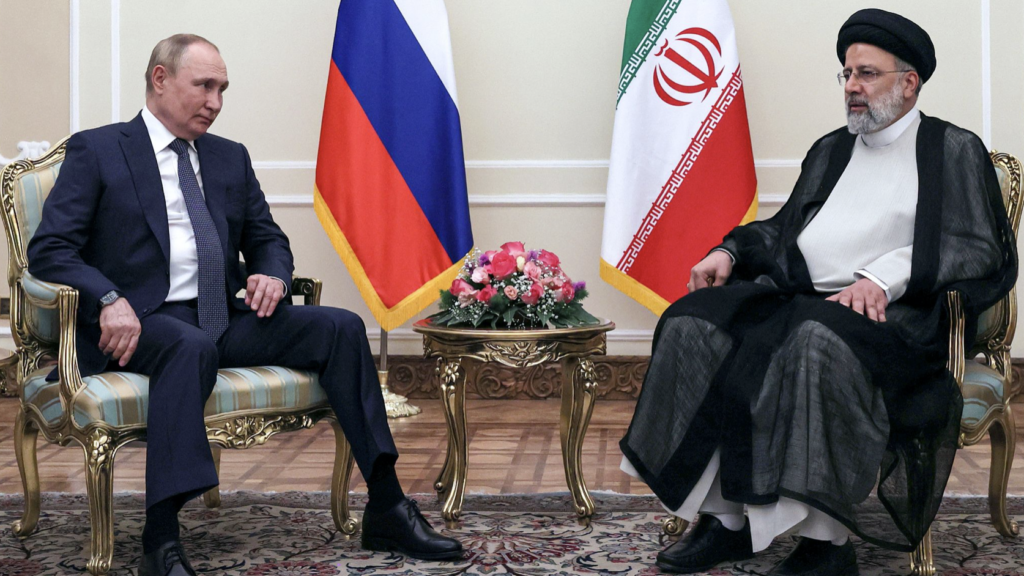A significant development has unfolded this week in the context of Iran ”“ Russia has agreed to forge a bilateral strategic pact with Iran. M.K. Bhadrakumar highlighted this development in his recent article for Consortium News titled “Decoding Iran’s Missile & Drone Strikes.”
Iran has been a consistent target of both U.S. and Israeli intelligence operations over several decades. These efforts have notably intensified in the past decade due to shared concerns between Israel and the U.S. about Iran’s nuclear ambitions. As previously discussed in my article, “What’s Good for the Goose Is Good for the Gander, Iran Plays the Terrorist Card,” the U.S. has openly expressed its support for the MEK, an organization that has been responsible for carrying out terrorist attacks within Iran. There have also been reports of Baluchi groups, residing in regions bordering Iran, Pakistan, and Afghanistan, conducting terrorist actions in Iran. Additionally, it is worth noting that the CIA has had connections with Baluchi groups dating back to at least 1979, raising the possibility that the agency may have provided training or assistance to these groups involved in attacks within Iran.


This development carries immense significance, as it implies that Israel and the United States could potentially find themselves in a precarious situation should they contemplate open military action against Iran, as it could lead to a confrontation with Moscow. This new dynamic adds another element to Iran’s strategic capabilities. Iran already possesses a range of non-nuclear ballistic missiles capable of targeting Israel and numerous U.S. military bases in the region. Furthermore, Iran has been engaging in joint military exercises alongside Russia and China for the past four years. When considered collectively, these factors become critical considerations that cannot be ignored by Western military planners.
Iran differs significantly from Yemen in terms of military capabilities, boasting a modern armed forces infrastructure encompassing the army, air force, navy, as well as a robust air defense system. Iran also possesses powerful ballistic missiles, advanced drones, and sophisticated cyber warfare capabilities. In the event that Israel or the United States were to launch a conventional military strike against Iran, the Iranian leadership would respond in kind. Such a scenario could escalate into a major regional conflict with the potential to spiral into a global crisis.
It is imperative that U.S. Secretary of Defense Lloyd Austin and CJCS General Charlie Brown fully grasp the implications of this situation. If they do, they will vigorously oppose any pressure from the Biden White House to initiate military action against Iran. Failing to do so would be a grave error, putting the safety and security of the American people at risk.
WATCH:

Thanks to our friends at The Gateway Pundit for contributing to this article.
Join the Discussion
COMMENTS POLICY: We have no tolerance for messages of violence, racism, vulgarity, obscenity or other such discourteous behavior. Thank you for contributing to a respectful and useful online dialogue.